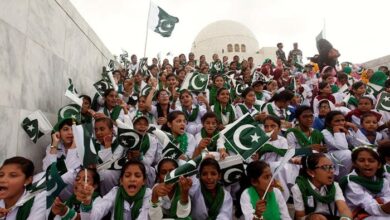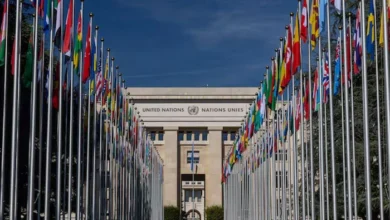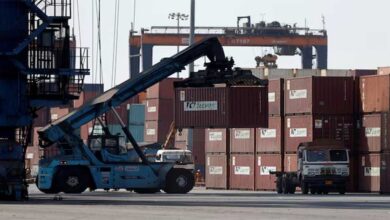Narendra Modi and Benjamin Netanyahu are not only ideological contemporaries but increasingly are also walking parallel paths that could either transform their nations into global powerhouses or plunge them into long-term internal fracture and regional instability.
Both leaders have come to personify a new form of strongman rule – religiously infused nationalism coupled with populist charisma and centralised control. They champion their respective faith-based majorities, present themselves as saviours of ancient civilisations and relentlessly polarise domestic discourse to consolidate their rule.
Under Netanyahu, Israel has seen technological and economic advancement, earning its place as a global tech hub. The Abraham Accords normalised relations with Arab states, and Israel’s defence sector continues to expand. Modi’s India has similarly celebrated its rise as the world’s fifth-largest economy, championed digital infrastructure, and taken a more assertive global posture.
But beneath these achievements lies an unsettling reality. In both countries, the economic gains have been uneven, exclusionary and often weaponised to distract from rising inequality and social fragmentation. In India, job creation lags far behind GDP growth, while corporate monopolies thrive. In Israel, the prosperity of Tel Aviv stands in stark contrast to the impoverishment of Palestinians in the occupied territories.
What’s even more alarming is the systematic erosion of democratic institutions. Modi has muzzled the press, co-opted the judiciary and unleashed state agencies against opponents. Independent journalists and activists are jailed on dubious charges, and public discourse is policed by digital mobs aligned with the ruling party.
Netanyahu has mirrored this playbook in Israel. His controversial push to gut the judiciary in 2023 sparked unprecedented nationwide protests. The reforms, seen as an attempt to escape legal accountability, highlighted his willingness to destabilise democratic norms for personal and ideological gain.
Both leaders have fused religion with nationalism to dangerous effect. In Modi’s India, Hinduism has been recast into Hindutva – a militant, political ideology that marginalises Muslims, Christians and Dalits.
From lynchings over cow slaughter to the destruction of homes and places of worship, hate crimes have surged under his watch. The 2020 Delhi riots, where over 50 people – mostly Muslims – were killed, stand as a grim testament to the cost of communal incitement.
Anti-conversion laws have been used to harass Christian minorities, with pastors arrested and churches attacked. In Manipur in 2023, over 200 churches were burned in a spasm of ethnic-religious violence.
Netanyahu’s Israel, once envisioned as a democratic homeland for Jews and a pluralistic state, has tilted towards ethno-religious exclusivity. The 2018 Nation-State Law declared Israel the nation-state of the Jewish people alone, effectively relegating Arab citizens to second-class status.
During repeated assaults on Gaza, thousands of civilians – including women and children – have been killed, with entire neighbourhoods flattened.
In 2021, Israeli police stormed the Al-Aqsa mosque during Ramazan, an act that inflamed tensions across the Muslim world. Settler violence in the West Bank has escalated, often under the watch or protection of the Israeli military.
Christian institutions, too, have not been spared. In Jerusalem, Christian clergy have been spat upon and threatened by extremist youth. Churches have been vandalised and groups like Lehava openly advocate for Christians to leave the Holy City.
Even dissent within the majority is no longer tolerated. In India, Dalit activists like Anand Teltumbde are imprisoned and secular Hindus face the wrath of digital and physical lynch mobs.
In Israel, non-Zionist Jews, including members of Breaking the Silence and left-wing Orthodox communities, are labelled traitors and targeted for repression. Across both nations, loyalty to the ruling ideology is increasingly equated with patriotism, while dissent is branded treason.
In foreign policy, both men revel in militarism. Netanyahu has launched repeated bombing campaigns in Gaza and pursued aggressive surveillance operations beyond Israel’s borders.
Modi’s government ordered airstrikes in Balakot in 2019 and revoked Kashmir’s autonomy, turning the region into a heavily militarised zone under curfew and information blackout. These actions, far from resolving conflict, deepen mistrust and push both regions toward cycles of retaliation and radicalisation.
So, will Netanyahu and Modi be remembered as modernisers or as polarisers? Will they be seen as the architects of national revival or as agents of democratic decay? While their economic and geopolitical gains are undeniable, so too are the cracks forming beneath their governance – cracks in democracy, civil society, religious harmony and rule of law.
Strongmen often rise by invoking fear, promising protection and pride. But in their quest for power, they can erode the very foundations they claim to defend. The legacies of Modi and Netanyahu will not be defined by growth figures or military victories alone.
They will be measured by whether they left behind societies that were more just, more united and more at peace – or more divided, more embattled and forever on the edge of fire.







